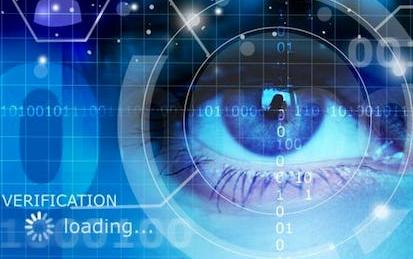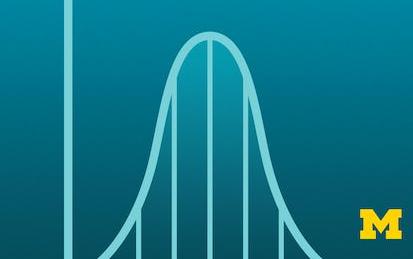

Our Courses

Data Science Methodology
If there is a shortcut to becoming a Data Scientist, then learning to think and work like a successful Data Scientist is it. In this course, you will learn and then apply this methodology that you can use to tackle any Data Science scenario. You’ll explore two notable data science methodologies, Foundational Data Science Methodology, and the six-stage CRISP-DM data science methodology, and learn how to apply these data science methodologies.
-
Course by

-
 Self Paced
Self Paced
-
 15 hours
15 hours
-
 English
English

Data Engineering and Machine Learning using Spark
NOTE: This course is currently replaced with IBM Machine Learning with Apache Spark.
Further your data engineering career with this self-paced course about machine learning with Apache Spark! Organizations need skilled, forward-thinking Big Data practitioners who can apply their business and technical skills to unstructured data such as tweets, posts, pictures, audio files, videos, sensor data, and satellite imagery and more to identify behaviors and preferences of prospects, clients, competitors, and others.
-
Course by

-
 Self Paced
Self Paced
-
 8 hours
8 hours
-
 English
English

Analyze Data in Azure ML Studio
Did you know that you can use Azure Machine Learning to help you analyze data? In this 1-hour project-based course, you will learn how to display descriptive statistics of a dataset, measure relationships between variables and visualize relationships between variables. To achieve this, we will use one example diabetes data.
-
Course by

-
 Self Paced
Self Paced
-
 3 hours
3 hours
-
 English
English

Computer Vision - Image Basics with OpenCV and Python
In this 1-hour long project-based course, you will learn how to do Computer Vision on images with OpenCV and Python using Jupyter Notebook.
-
Course by

-
 Self Paced
Self Paced
-
 2 hours
2 hours
-
 English
English

Machine Learning for Accounting with Python
This course, Machine Learning for Accounting with Python, introduces machine learning algorithms (models) and their applications in accounting problems. It covers classification, regression, clustering, text analysis, time series analysis. It also discusses model evaluation and model optimization. This course provides an entry point for students to be able to apply proper machine learning models on business related datasets with Python to solve various problems. Accounting Data Analytics with Python is a prerequisite for this course.
-
Course by

-
 Self Paced
Self Paced
-
 64 hours
64 hours
-
 English
English

Guided Tour of Machine Learning in Finance
This course aims at providing an introductory and broad overview of the field of ML with the focus on applications on Finance. Supervised Machine Learning methods are used in the capstone project to predict bank closures.
-
Course by

-
 Self Paced
Self Paced
-
 24 hours
24 hours
-
 English
English

Introduction to Computer Vision and Image Processing
Computer Vision is one of the most exciting fields in Machine Learning and AI. It has applications in many industries, such as self-driving cars, robotics, augmented reality, and much more. In this beginner-friendly course, you will understand computer vision and learn about its various applications across many industries. As part of this course, you will utilize Python, Pillow, and OpenCV for basic image processing and perform image classification and object detection. This is a hands-on course and involves several labs and exercises.
-
Course by

-
 Self Paced
Self Paced
-
 22 hours
22 hours
-
 English
English

Inferential Statistical Analysis with Python
In this course, we will explore basic principles behind using data for estimation and for assessing theories. We will analyze both categorical data and quantitative data, starting with one population techniques and expanding to handle comparisons of two populations. We will learn how to construct confidence intervals. We will also use sample data to assess whether or not a theory about the value of a parameter is consistent with the data. A major focus will be on interpreting inferential results appropriately.
-
Course by

-
 Self Paced
Self Paced
-
 19 hours
19 hours
-
 English
English

Understanding and Visualizing Data with Python
In this course, learners will be introduced to the field of statistics, including where data come from, study design, data management, and exploring and visualizing data. Learners will identify different types of data, and learn how to visualize, analyze, and interpret summaries for both univariate and multivariate data.
-
Course by

-
 Self Paced
Self Paced
-
 21 hours
21 hours
-
 English
English

Introduction to Big Data with Spark and Hadoop
This self-paced IBM course will teach you all about big data! You will become familiar with the characteristics of big data and its application in big data analytics. You will also gain hands-on experience with big data processing tools like Apache Hadoop and Apache Spark. Bernard Marr defines big data as the digital trace that we are generating in this digital era. You will start the course by understanding what big data is and exploring how insights from big data can be harnessed for a variety of use cases.
-
Course by

-
 Self Paced
Self Paced
-
 24 hours
24 hours
-
 English
English

Mathematics for Machine Learning: Linear Algebra
In this course on Linear Algebra we look at what linear algebra is and how it relates to vectors and matrices. Then we look through what vectors and matrices are and how to work with them, including the knotty problem of eigenvalues and eigenvectors, and how to use these to solve problems.
-
Course by

-
 Self Paced
Self Paced
-
 19 hours
19 hours
-
 English
English

Fitting Statistical Models to Data with Python
In this course, we will expand our exploration of statistical inference techniques by focusing on the science and art of fitting statistical models to data. We will build on the concepts presented in the Statistical Inference course (Course 2) to emphasize the importance of connecting research questions to our data analysis methods.
-
Course by

-
 Self Paced
Self Paced
-
 15 hours
15 hours
-
 English
English

Fundamentals of Scalable Data Science
Apache Spark is the de-facto standard for large scale data processing. This is the first course of a series of courses towards the IBM Advanced Data Science Specialization. We strongly believe that is is crucial for success to start learning a scalable data science platform since memory and CPU constraints are to most limiting factors when it comes to building advanced machine learning models.\n\nIn this course we teach you the fundamentals of Apache Spark using python and pyspark.
-
Course by

-
 Self Paced
Self Paced
-
 22 hours
22 hours
-
 English
English



